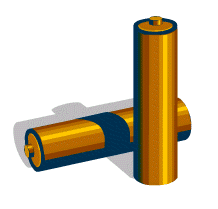Home >>> Waste >> eCycling
Electronic Recycling = "eCycling"
Electronics and appliances are the fastest growing portion of trash today. The EPA predicts that in the next five years, approximately 250 million computers will become obsolete. Cell phones are being discarded at about 130 million per year. That's about 65 million tons of waste!
How can you recycle your electronics?
The EPA has launched a national campaign to reuse and recycle old computers, televisions, and cell phones. For a complete list of partners, and places to recycle your electronic items, visit www.plugintorecycling.org.
 Why
recycle electronics?
Why
recycle electronics?
Electronics can present an environmental hazard
if discarded improperly. Lead and other potentially hazardous materials
for in these devices call for special handling at the end of their use.
 Cell
phones
Cell
phones
Many cell phone providers have programs to donate old and unwanted cell phones to local organizations. Check with your provider to see if such a program exists. The Cellular Telecommunications and Internet Association has the Wireless...The New Recyclable campaign that collects wireless phones, chargers, and accessories. For a complete list of collection centers or donation programs, visit http://www.cellphonerecycling.com/.
 Computers
Computers
Computer replacement is at it's fastest rate ever, so what to do with your old computer? Most computer companies have recycling and donation programs in place to give your old computer a new life.
- HP Product Recycling -- HP
will recycle any brand computer equipment or HP printing supplies.
- Dell --
Information about Dell's recycling/donation program.
- Apple
--Their end of life management option.
Rechargeable Batteries

Rechargable batteries are found in laptops, cellular phones, power tools, etc, and contain hazardous chemicals that can pose a risk to the environment if they are disposed of improperly. During the recycling process, recovered materials are used to make new batteries and stainless steel products. Remember, if it's rechargable, it's recyclable.
For information about local drop-off sites, check out the Rechargable Battery Recycling Corporation.

